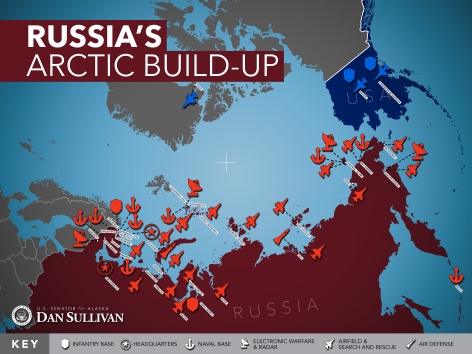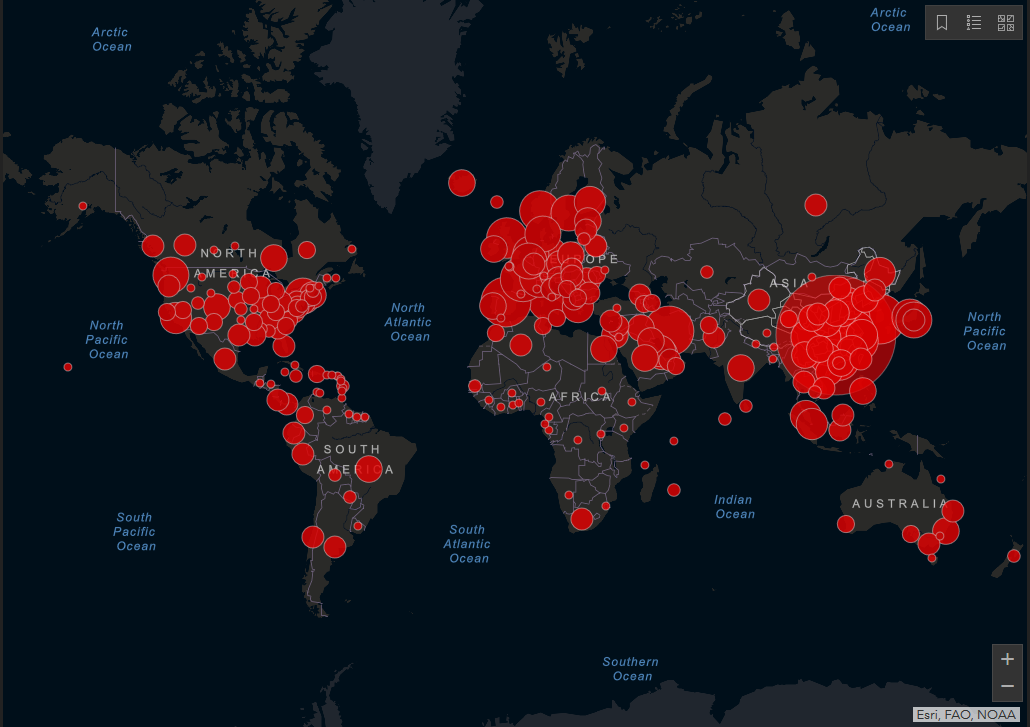> – Egypt’s Muslim Brotherhood Represented on Army-Backed Committee to Propose Constitutional Amendments
– Egypt’s Muslim Brotherhood Represented on Army-Backed Committee to Propose Constitutional Amendments
– Syrian President’s Cousin, Living in Exile in London, Warns Ba’athist Regime to “Change or Be Changed”
– Israel Denounces Iranian “Provocation” as Tehran’s Warships Request Permission to Transit Suez Canal, Sail to Syria
Pictured above: Demonstrators opposed to the regime of Libya’s Colonel Muammar al-Qaddafi gather in Hyde Park, London, on February 17, 2011.
Poverty, high unemployment, and decades of political oppression are the primary catalysts for the protests gripping North Africa, the Arabian Peninsula and other parts of the Muslim world.
Following the resignation of Egyptian President Hosni Mubarak last Friday, the army has suspended the constitution and is ruling by decree. On February 18, thousands of pro-democracy supporters converged in Cairo’s Tahrir Square for a day of celebration marking one week since the socialist dictator stepped down. In attendance was leading Muslim cleric Yusuf al-Qaradawi, who called on the army “to listen to the will of the people” by introducing new blood into Mubarak’s former cabinet, which still includes many of the ex-president’s allies.
Both the 82-year-old Mubarak and his almost equally old vice president, Omar Suleiman, who announced Mubarak’s resignation on state television, vanished last Friday. Rumors suggest that Mubarak is still keeping a low profile at the Red Sea resort of Sharm el-Sheikh, but his health is apparently poor. One report states that Mubarak has passed out on several occasions, while others suggest that he is suffering from assorted ailments, everything from depression to cancer.
This week, Egyptian workers continued to strike in various professions. The strikes shut down state and private banks, public transit, and ambulance services. Egypt’s stock exchange plans to reopen next week at the earliest.
Meanwhile, the pro-Iran, anti-Israel Muslim Brotherhood professes to have no political aspirations but, nevertheless, has announced its intention to organize itself as a formal political party. On the one hand, Brotherhood leader Mohamed Badie discoursed at the organization’s website:
The revolution has started to bear fruit. Egyptians should not allow the chance for opportunists to kidnap it and its accomplishments. This is an Egypt that cannot be deceived. We will not seek the presidency or a parliamentary majority in free and fair elections, as promised by the military council. We have no appetite for the presidency, or a majority or temporal positions.
On the other hand, in a separate statement on the Brotherhood website, spokesman Mohammed Mursi conceded: “The Muslim Brotherhood group believes in the freedom of the formation of political parties. They are eager to have a political party.” The Brotherhood, which advocates the establishment of an Islamic fundamentalist state in Egypt, has a member on the judicial committee set up by the ruling military council to propose constitutional amendments. In the wake of the collapse of the National Democratic Party regime, the Brotherhood is enjoying “unprecedented recognition” from the state that banned it for three decades.
Incidentally, an Iranian academic, Mohammad-Javad Larijani, who is Secretary General of the misnamed High Council for Human Rights, alleges that “senior Egyptian military commanders are under the influence of CIA and Mossad.” Last Sunday night, Larijani, a mathematician educated at the University of California at Berkeley, told IRIB Channel 2:
The Egyptian military officials do not dare to make any problem for the United States and this is why Washington insists on empowerment the Egyptian military. The West has been trying to censor news of Egypt so that the world does not get true information about the country. The movement of Egyptians should be pursued based on Islamic principles, anti-American and anti-Zionism.
The revolutionary wave that began last month in Tunisia has finally crashed across neighboring Libya, where anti-regime protesters in the country’s second largest city, Benghazi, demanded the ouster of long-time strongman Muammar al-Qaddafi.
On Wednesday morning, hundreds of anti-Qaddafi protesters staged a “day of rage” over the arrest of a human rights activist, clashing with police and pro-regime stooges. Anti-regime protesters hurled petrol bombs at their opponents and torched cars. A witness told Reuters by telephone: “There were about 500 or 600 people involved. They went to the [government’s] revolutionary committee in Sabri district, and they tried to go to the central revolutionary committee [where] . . . they threw stones.”
Middle East experts like Charles Gurdon at Menas Associates question whether Libyans will oust their dictator, as did Tunisians and Egyptians, but he then comments: “Having said that, after Tunisia people said that Egypt would not be the same. A lot will depend on how heavy-handed the security forces are.”
In an effort to buoy up the regime, state TV reported pro-government rallies in the capital Tripoli, as well as Benghazi. Under portraits of Qaddafi, supporters shouted: “We sacrifice our blood and souls for you, our leader! We are a generation built by Muamar and anyone who opposes it will be destroyed!” At the same time, the Qaddafi regime appeared to make some concessions to the country’s Islamic opposition by releasing 110 men jailed for membership in the banned Libyan Islamic Fighting Group. In 1996 the prison used to incarcerate Islamic militants was the site of a violent clash with police, leading to the killing of 1,000 inmates.
On Thursday, reports the Israeli media, anti-Qaddafi protests erupted in four cities, provoking confrontations with more pro-regime rent-a-mobs. An opposition website alleges that security forces killed 14 protesters in the city of Beyida. Like Egypt’s opposition, anti-Qaddafi activists are using Facebook and Twitter to organize nationwide demonstrations. Hard news of the uprising in Libya is hard to come by as the state media refuses to acknowledge the incidents. On Friday, security forces gunned down 35 participants in a funeral procession in Benghazi, bringing the total number slain in Libya’s protests t0 84.
Inspired by Gamal Nasser in Egypt, military officer Qaddafi seized power from the Libyan monarch in 1969, proclaimed a party-less socialist republic, quickly allied his country with the Soviet Union, sponsored terrorist attacks in Europe in the 1980s, and armed and trained African revolutionaries in the 1990s. In 1986, following the Libyan-orchestrated bombing of a nightclub in West Berlin that killed two US servicemen, President Ronald Reagan dispatched the US Navy to take out Qaddafi’s residence in Tripoli and assorted military installations.
To this day, Qaddafi remains a close ally of Russia, promotes the socialist/communist-dominated African Union, over which he was lately chairman, and enjoys a cozy relationship with Venezuela’s communist dictator, Hugo Chavez.
In Algeria, which shares a border with both Tunisia and Libya, the long-ruling National Liberation Front regime has shut down the Internet, which has become a powerful networking tool for anti-government activists throughout the region. On February 14, Algeria’s foreign minister, Mourad Medelci, told French radio Europe 1 that his government would shortly lift the 20-year state of emergency, days after protesters took to the streets to demand government reform.
“Soon, we will discuss the past, but I say that lifting the state of emergency will occur in the coming days. It will mean a return to Algeria, a rightful state which totally allows the expression of opinions, but always with reference to the law.” The minister downplayed the protests, referring to them as “minority” movements. Earlier this month, Algeria’s socialist dictator, President Abdelaziz Bouteflika, said he would lift the ban in the “very close future.”
The state of emergency was imposed in 1992 to crush an Islamic insurgency that led to the deaths of what US officials estimate to be more than 150,000 people. The Algerian civil war lasted more than a decade. “It pitted a corrupt military junta, which had ruled behind the facade of an elected government, against Islamists who effectively won a popular election in the early 1990s, and were then deprived of power,” explained the Centers for Strategic and International Studies recently. Opponents of the FLN regime say the Islamist threat has long since evaporated and the law exists only to silence government critics.
On February 12, The Telegraph reported that 30,000 riot police deployed throughout Algiers to thwart the anti-regime protests. The government also shut down Internet providers and deleted Facebook accounts across Algeria. “The government doesn’t want us forming crowds through the internet,” said Rachid Salem, a spokesman for Coordination for Democratic Change in Algeria. “Security forces are armed to the teeth out on the street, and they’re also doing everything to crush our uprising on the internet. Journalists, and especially those with cameras, are being taken away by the police.”
Last Saturday, at least 500 anti-regime protesters were arrested in Algiers alone, with hundreds more in Annaba, Constantine, and Oran taking part in the so-called February 12 Revolution. “The police station cells are overflowing,” related Sofiane Hamidouche, a demonstrator in Annaba. “There are running battles taking place all over the city. It’s chaos. As night falls the situation will get worse.”
On February 17, 1,500 protesters in Yemen clashed with government loyalists, who were armed with daggers and batons, as the former demanded the end of President Ali Abdullah Saleh’s 32-year rule over both the Yemen Arab Republic (North Yemen) and the reunited Republic of Yemen. “The people want the fall of the president, the people want the fall of the regime,” chanted the protesters. Dozens were wounded and carried away from the scene. Thursday’s bloodshed represented the seventh consecutive day of anti-regime protests in Sanaa.
President Saleh is an ally in the USA’s “War on Terror,” but a third of the population in his country faces severe hunger while 40 percent live on less than US$2 a day. The government is struggling to finalize a truce with Iran-backed Shia Muslim rebels in the north and quell an increasingly violent separatist movement in the south, which vows to restore the People’s Democratic Republic of Yemen. Khaled Fattah, a scholar at Scotland’s St. Andrews University, comments on the anti-regime protests in Yemen:
Saleh may prove harder to topple than Egyptian President Hosni Mubarak. The continuity of protests, however, may put pressure on Saleh’s government to offer more political concessions to the Southern Movement. Such concessions might lead to the adoption of a federal system.
To placate his many foes, Saleh has pledged to step down when his term ends in 2013 and promised not to let his son “inherit” the presidency. Last week, a court in Aden initiated a trial in absentia for Southern Movement leader Shalal Ali Shia on charges of inciting a revolt against the central government and targeting security forces. Southern Yemen is home to most of the country’s oil facilities.
Elsewhere on the Arabian Peninsula, Bahrainis are demanding the ouster of Prime Minister Sheikh Khalifa bin Salman al-Khalifa, a member of the Sunni Muslim royal family who has held the post for 40 years, and the implementation of democratic reforms. On Thursday morning, police fired tear gas at protesters after hundreds gathered at the funeral of a demonstrator who died in clashes two days before. The Bahrain Youth Society for Human Rights said in an emailed statement that two people were killed during Thursday’s illegal protests.
According to Mahdi Mattar, head of research at Abu Dhabi-based CAPM Investment PJSC, “Investors are de-risking due to the events in Bahrain mainly. Both local and the few international investors might want to reduce their exposure.” Tiny Bahrain is also home to the US Navy’s Fifth Fleet. From this location, the US military can monitor and, if necessary, intimidate the radical Islamic regime in Iran.
During Tuesday’s clashes between protesters and security forces, police blocked the main roads into Bahrain’s capital and used tear gas and bird shot to disperse marchers seeking admission into Manama.
Elsewhere in the Muslim world, on Wednesday supporters and opponents of the Iranian government clashed at a funeral for a student shot dead during an opposition rally, with both sides claiming him as one of their own. State TV showed thousands of government supporters at Tehran University for the funeral of Sanee Zhaleh, one of two people shot dead on Monday. The opposition rally, which expressed support for the revolutions in Egypt and Tunisia, was the first major unrest in Iran since a wave of arrests, trials, and at least two executions took place after President Mahmoud Ahmadinejad’s re-election in 2009.
The USA’s crypto-Muslim president, Barack Hussein Obama, commented on the unrest in Iran: “I find it ironic that you’ve got the Iranian regime pretending to celebrate what happened in Egypt, when in fact they have acted in direct contrast to what happened in Egypt by gunning down and beating people who were trying to express themselves peacefully.”
Finally, the socialist dictatorship in Damascus has been spared the unrest sweeping across the region, but this week the cousin of President Bashar al-Assad urged the Syrian dictator that “he must change or be changed.” Living in exile in London, where he manages the Organization for Democracy and Freedom in Syria, Ribal declared: “We do not want a revolution in Syria. We want the government to start to implement change, peaceful change.”
As political unrest continues in Egypt, the Suez Canal has become a focus of concern for the West, including Israel, the USA’s only reliable ally in the Middle East. Last Tuesday, a ship ran aground in the strategically important and economically vital canal due to engine failure in poor weather. “A cargo ship ran aground due to an engine malfunction in the southern sector of the canal, blocking five ships behind it,” a maritime source told Reuters. The source could not indicate when sea traffic would resume. Five of Egypt’s Red Sea ports were also closed on Tuesday due to bad weather.
According to international law, which Egypt’s ruling military council has pledged to uphold, Cairo cannot forbid any vessel from passing through the canal unless that country is at war with Egypt. Ahmed El-Manakhly, transit director at the Suez Canal Authority, reminded the world of this fact in a February 17 interview with Bloomberg Television. However, a country that is effectively at war with Egypt’s neighbour Israel, Iran, has requested permission for two of its warships to transit the canal.
Bloomberg, citing the Islamic Republic News Agency, reports: “The vessels will go to Syria, where they will anchor ‘for a few days’ on a trip that is ‘routine according to international law’ and part of Iran’s strategic relations with Syria . . .” The information originated from Iran’s ambassador in Damascus, Ahmad Mousavi. “The request is being studied,” Hossam Zaki, a spokesman for the Egyptian Foreign Ministry, acknowledged on February 18. “Whether or not they actually send them is another story.”
The Israeli government considers the Iranian request to transit the Suez Canal a “provocation” and is monitoring the warships’ movements. Oil prices rose on Thursday after the Iranian state media confirmed reports that its warships are planning to navigate the canal.








 – Egypt’s Muslim Brotherhood Represented on Army-Backed Committee to Propose Constitutional Amendments
– Egypt’s Muslim Brotherhood Represented on Army-Backed Committee to Propose Constitutional Amendments









